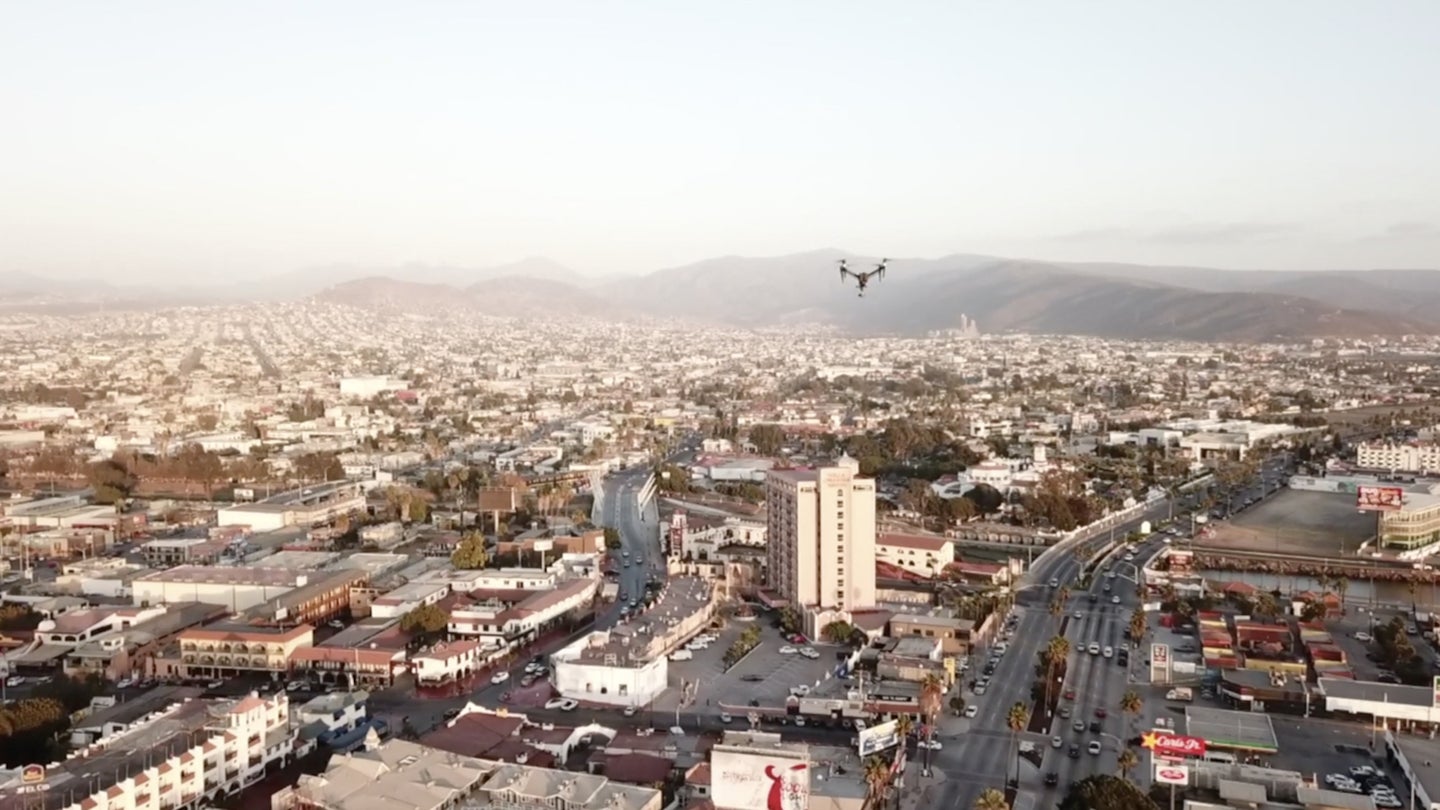Chula Vista Police Holds off on Patrolling Streets With Drones Due to Public Perception
Cape’s drone platform has worked wonders in crime reduction in other parts of the world.

The Chula Vista Police Department has worked alongside Cape under the UAS Integration Pilot Program since May, building on the department’s drone program launched in 2015, according to The San Diego Union-Tribune. It recently began using drones outside of training exercises and has deployed UAVs in official warrant sweeps.
We first learned about Cape’s service in June, when the Ensenada police department in Mexico announced a stunning 10 percent decrease in crime attributed to the mere addition of one drone and Cape’s aerial telepresence platform. Earlier this month, the company joined the San Diego Fire Department in deploying the first public UAS Integration Pilot Program drone in the city’s history.
In terms of Cape’s aerial telepresence platform, it essentially allows autonomous drones to aerially patrol as police officers on the ground access the camera feeds’ live streams, and thereby do their jobs more efficiently with more information at their disposal. For Ensenada, Mexico, Cape’s services have reportedly led to over 500 arrests and a 10 percent reduction in overall crime since last October. CEO Chris Rittler, of course, is excited at seeing his work play out in the real world.
“Chula Vista is really setting the benchmark for the whole of the U.S., which is really just super impressive,” he said.
While an increasing number of public safety offices across the country are gravitating toward standardized drone implementation, the Chula Vista PD is treading softly, citing public perception of drones in law enforcement as the primary reason to take things slow.
“In most things, we try to be in the cutting edge,” said Capt. Vern Sallee, who manages the Chula PD’s drone program. “In this one, we purposefully tried not to. We didn’t want to be the agency out there making the mistakes.”
Sallee is aware of the prevalent dystopian image, and the warranted fears on behalf of the public regarding the modern, aerial panopticon that is law enforcement with drone fleets at its disposal. In that sense, Sallee has presumably opted to allow the collective thinking surrounding drone use by police to change slowly, in order to give people enough time to acclimate.
“We realize…that’s the biggest concern our community has,” he said. “They don’t want a police surveillance state. They don’t like the idea of the Police Department essentially having free aerial reign to look into their backyards.”
To his point, there is a sizable backlash against drones in law enforcement, as evidenced by various chapters of the ACLU demanding police departments commit to their publicly stated appeasements in writing or comments at town halls in places like Wichita and Austin. Fairfax, Virginia and Denver, Colorado have delayed and shelved their drone programs for good due to public concerns. As such, Sallee is simply observing how various communities have reacted to drone use by police departments, and arguably, wisely so.
In order to sway public perception in its favor, the Chula Vista Police Department has met with residents and fostered a relationship with the ACLU. In the future, the department plans to launch an informative website that provides visitors with flight pattern information of any and all police drones, with deployment justification and reasoning explained.
“I would’ve thought we would’ve had more resistance, said Lt. Chris Kelley. “The signals I get is that they want this technology used to find grandpa when he wanders off.”
Currently, we as a society are at an extremely important fulcrum point, where federal, state, and local legislation is drafted seemingly every other week. As drones are merely a tool that can either be used for productive or destructive reasons, so they are as tools of the police. It is simply up to us to ensure that in the hands of power, those tools are used for the former, instead of the latter.
